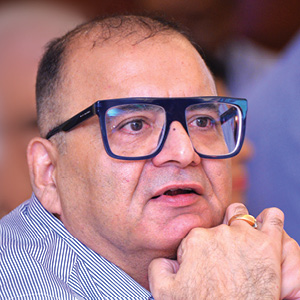Key Points
- Prime Minister's goal for India is to achieve developed country status by 2047.
- The objective is to have a spatially dispersed, job generative, equitable and sustainable growth.
- India 2047 Centre of Excellence will develop responsibility frameworks and indices for Corporate Digital Responsibility (CDR).
- It also includes Responsibility Frameworks for Gaming, Digital Lending, OTT and Social Media Intermediaries and Artificial Intelligence.
- There's recognition of significant gaps in research, policy and implementation within government, regulatory bodies and industries due to the rapid changes globally.
- The CoE stresses the importance of capacity building to address these gaps effectively.
- It is important to document best practices, case studies and initiatives taken by Indian corporations.
- It requires multi-stakeholder engagement including academics, practitioners, economists, thinks tanks and industry in developing solutions and implementing policies.
- The conversation emphasises the need for regulatory frameworks to evolve in response to emerging challenges such as mental health concerns.
Recommendations
Capacity Building and Research
- Allocate resources towards research initiatives focused on understanding and addressing key socio-economic and regulatory challenges specific to India. This includes funding for academic institutions, think tanks, and research organisations to conduct in-depth studies.
- Establish mechanisms for continuous policy analysis and development to keep pace with the evolving landscape. This involves creating dedicated teams or agencies responsible for monitoring global trends, conducting comparative policy analysis, and recommending policy reforms tailored to Indian needs.
- Implement training programmes and capacity-building initiatives aimed at enhancing the skill sets of policymakers, regulators, and industry professionals. This can include workshops, seminars, and educational courses focused on areas such as regulatory compliance, data analysis, and policy evaluation.
Development of Indices and Frameworks that become global benchmarks
- Conduct comprehensive research and stakeholder consultations to identify relevant parameters and metrics for globally relevant indices and frameworks that take into account the realities of Global South.
- Define clear definitions and standards for key concepts such as environmental sustainability, social responsibility, and corporate governance within the Indian context. Establish standardised methodologies for data collection, analysis, and reporting to enhance transparency and comparability.
- Actively promote the adoption of citizen centric indices and frameworks among government agencies, regulatory bodies, and private sector entities.
Corporate Digital Responsibility
- Raise awareness among corporations about the importance of Corporate Digital Responsibility and its impact on sustainable development. Develop educational materials, guidelines, and case studies highlighting best practices in areas such as environmental stewardship, social impact, and ethical governance.
- Foster collaboration among industry stakeholders to share knowledge, resources, and expertise in promoting corporate digital responsibility. Establish industry forums, working groups, or consortiums focused on specific thematic areas to facilitate collective action and knowledge exchange.
- Encourage innovation in digital technologies and business models that prioritise sustainability, inclusivity and ethical conduct.
Harmonisation of Regulatory Frameworks
- Conduct a comprehensive mapping and analysis of existing regulatory frameworks related to digital lending, gaming, OTT platforms, and social media intermediaries. Identify overlaps, gaps, and inconsistencies across different regulatory domains.
- Facilitate dialogue and collaboration among relevant stakeholders, including government agencies, industry associations, consumer groups, and academic experts. Establish multi-stakeholder task forces or committees to streamline regulatory processes and promote convergence towards common standards.
- Advocate for regulatory frameworks that are flexible, adaptive, and technology-neutral to accommodate rapid technological advancements and emerging business models. Encourage experimentation with regulatory sandboxes, pilot projects, and regulatory impact assessments to assess the effectiveness of new regulations before widespread implementation.
Public Awareness and Education
- Implement public awareness campaigns to educate individuals, especially youth, about the risks associated with excessive gaming and gambling. Provide resources and support for those struggling with gaming addiction.
Industry Self-Regulation
- Encourage the industry to adopt self-regulatory measures to promote responsible practices. This could include implementing age verification mechanisms and setting limits on in-app purchases.
Research and Data Collection
- Conduct research to better understand the impact on mental health, social behaviour, and economic outcomes.
Collaboration with Stakeholders
- Foster collaboration between government agencies, industry stakeholders, healthcare professionals and advocacy groups to develop holistic approaches. This collaboration should involve sharing best practices, resources and expertise.

